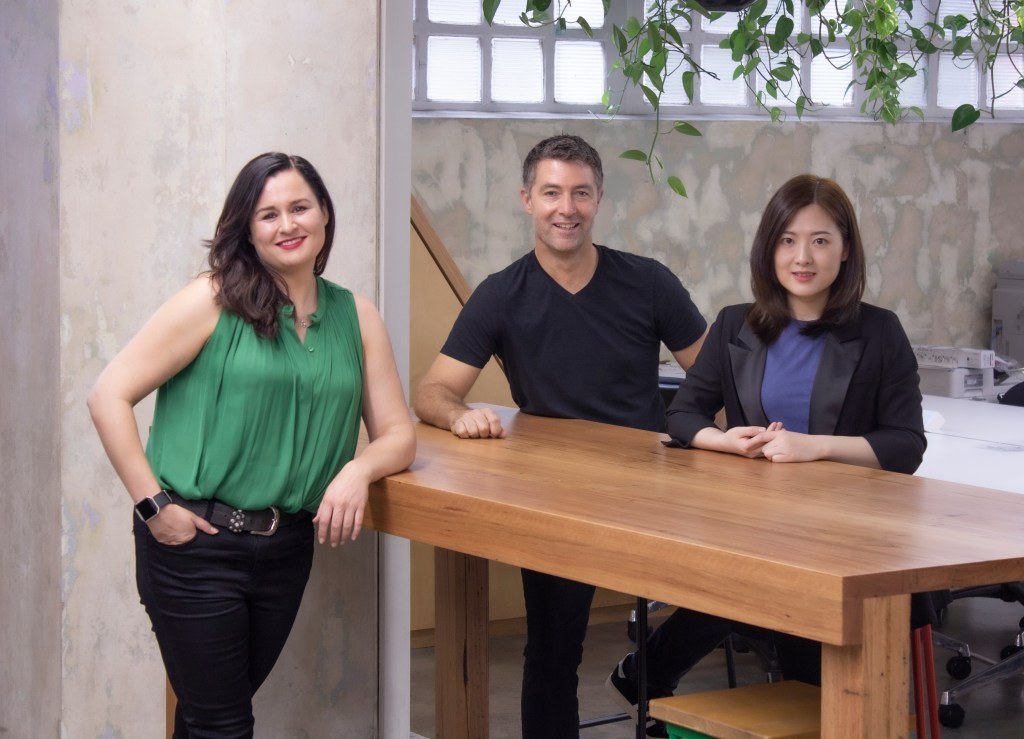How Reejig’s Siobhan Savage is maximising employee potential.

Reejig’s co-founder Siobhan Savage has one question for every CEO in the world.
“If you don’t have a zero wasted potential people strategy in place, why not?”
Savage predicts there will come a time soon where Boards will be reporting on ESPG, where P stands for people sustainability, along with the original environment, social and governance concerns.
“Any company with more than 2000 people has the same problems. They don’t know who their people are, they can’t move people to meaningful work and can’t adapt and create resilience within their workforces,” Savage says. “From a shareholder perspective, it you are not able to evolve your work force, you are not a leader.”
Launched in 2019, Savage is one of three co-founders of Reejig (pictured above), including her husband Mike Reed, and Shujia Zhang a family friend. “We went all in and it was really high risk.”
The problem Savage identified was that the data required to fairly assess potential could sit all over a company.
“It doesn’t exist in one place. I knew how to solve this problem. My fear was that if I did not do this, someone else would. That was my wasted potential. So I just did it and I have never once doubted that this will not be what it is already becoming.
“The impact of wasted potential costs millions of dollars for companies. Covid fast tracked the visibility of the problem to the CEOs and the people who could do something about it.”
In three years, customers have been added in Australia, Singapore, North America, and the UK. Industries using the workforce intelligent platform for hiring, retention and reskilling include retailers, professional services, government, banks, financial services, technology companies and include some of the biggest employers in the world.
“We are helping our customers to have, for the first time, 100% visibility of their people,” Savage says. “They now know what their skills are and what their potential is. They can now use that information to mobilise people. They can pivot people easily with Reejig.”
“The impact of wasted potential costs millions of dollars for companies.”
– Reejig co-founder Siobhan Savage
Savage says that from a retention perspective, making sure employees feel seen and heard in the company they are working for can make a real difference.
“We can help nudge people toward relevant moments of opportunity so they don’t have to leave.”
Reejig has gained funding from investors who believe in a world of zero wasted potential, including Skip Capital founder Kim Jackson and her husband, Atlassian co-founder Scott Farquhar, Salesforce and Airtree.
Join the movement
Savage believes that from a society point of view, zero wasted potential is actually a movement.
“It is no longer acceptable for a company to be hiring and firing constantly. We need to treat people in a way that is respectful and be responsible as leaders to make sure that we don’t leave people behind.”
If strategy changes and the company is moving from mechanical car making to electric vehicle manufacturing, what support does the employer give the employee to get to that place?
Staff should be asking the question: “What resilience has a company got in place to protect my role? If things change, and it always does, what do you have in place to respond to that? What are my leaders doing to make sure I have a healthy transition into a new role?”
Savage says organisations are starting to bring zero wasted potential into their strategies.
“Boards have to report on ESG and sustainability metrics and yet they are treating people from a wastage point of view. People are an important part of how we should be reporting and creating sustainability and we should be looking at ESPG where the P stands for People within our workforces,” Savage says.
Roxanne Calder, founder and managing director of EST10, a Sydney-based administration recruitment agency, agrees there is a massive challenge for companies that must be addressed.
“Human capital remains our biggest asset. Never before have we felt such hiring pressures,” Calder says. “Provide purpose at work, and you will be ahead of the 2023 recruitment curve.”
